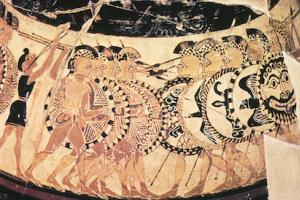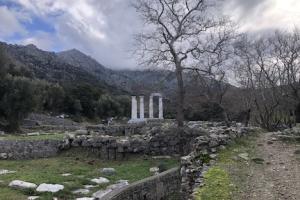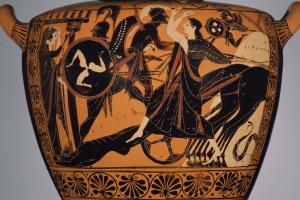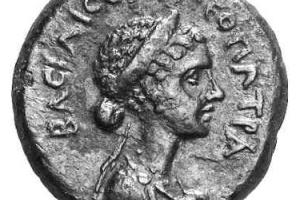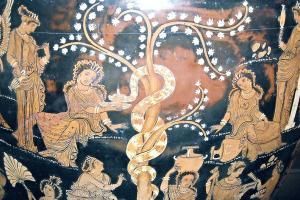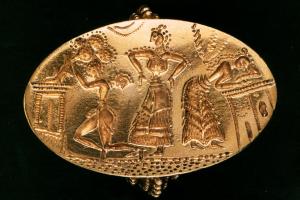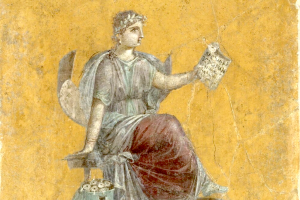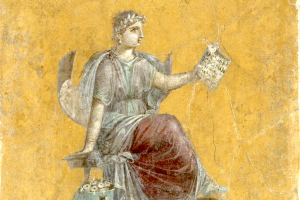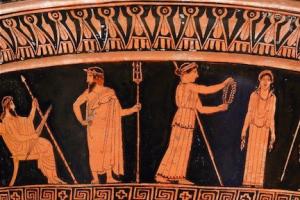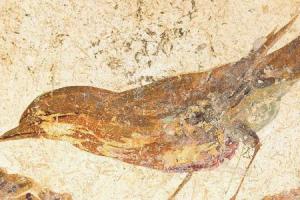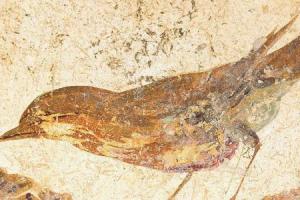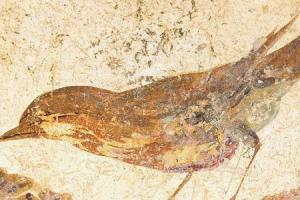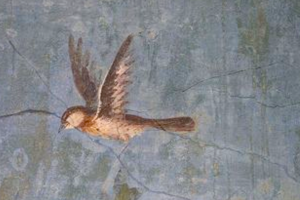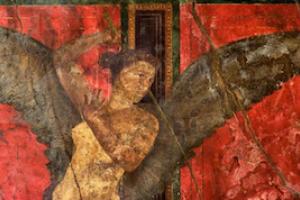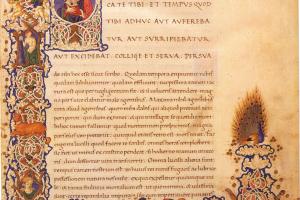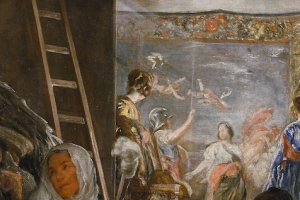Fall 2023
A survey of ancient Greek literature, history, and culture from the eighth century BCE to the death of Socrates in 399 BCE. We will focus on what made Greek culture distinctive and different from our own.
Who were the ancient Greeks, and what did they leave behind? From famous temples and statues to the houses, graves, and possessions of everyday people, we'll explore the archaeology of the Greek world from the first farmers through the aftermath of Alexander the Great's empire.
In this seminar, we will read and discuss the Iliad (in the translation by Richmond Lattimore), focusing on the central books.
"We’re going to show not just how sexy and appealing [Cleopatra] was, but how strategic and smart, and how much impact she had and still has on the world we’re living in today." — Gal Gadot promoting her upcoming movie Cleopatra, not AGRS 39A
Major themes from the culture of ancient Greece, the Hebrew Bible, classical Rome, & early Christianity significant for Western Civilization. Satisfies either half of the R&C requirement.
A broad overview of the economy of the Roman Empire.
An introduction to the ancient civilizations of the Bronze Age (3000-1100 BCE) Aegean: Crete, the Cyclades, Mainland Greece, and Western Anatolia. The still enigmatic remains of palaces, burials, paintings, and precious objects are explored in terms of their cultural contexts.
While the course is primarily directed towards improving your knowledge of Greek, it will include consideration of our texts as intellectual and artistic achievements, and for the light they shed on Athenian culture.
We will read Euripides’ Hippolytus, with close attention paid to translation of the Greek text and to the literary, religious, and historical issues raised by this play.
We will read selections in Latin from Caesar & Cicero. The aims of the class are to learn to read Latin with understanding & enjoyment & to improve the reading knowledge by reviewing morphology, syntax, & vocabulary.
Two midterms and a final exam. Attendance & participation will be part of your grade.
Study of a selection of the *Letters* of the younger Seneca.
A sequence of readings and lectures on Greek literature.
Introduction to basic methods of literary analysis and interpretation, and study of particular critical approaches of significance for the understanding of Classical literature. Close reading of selected passages of Greek and Latin will be emphasized.
The four elements played a fundamental role in ancient Greek thought across all genres and discourses. Like the air we breathe, the elements are so ubiquitous in ancient texts as to largely escape notice. But precisely this ubiquity makes them productive objects of study in their own right and media through which to access the thought-world of the Greeks. From the sea as a space of commerce and colonization to Hesiod’s divine and well-worked earth, from the fires of Aetna (or of love) to the animating breath of air, the elements oscillate between matter and metaphor, organizing ancient ways of thinking and being.
In this seminar will look at the elements both collectively (e.g. in medicine and philosophy) and individually, investigating the unique associations of each. We will follow water from liquid to solid and from the wine-dark sea to rivers and raindrops, exploring its paradigmatic fluidity of form and affordance. We will consider earth as Gaia, arable land, and political territory, but also as clay, dirt, and stone, and as the mysterious interior space of Plato’s chora. Our exploration of fire will encompass volcanoes, sacrificial fires and funeral pyres, and the cosmic “fire ever-living” of Heraclitus. Finally, air provides atmosphere, both meteorological and aesthetic, and a medium for diverse beings (including clouds, birds, ghosts, images, words, gods and daimones); its association with the soul also makes it the privileged element of life itself. Bringing together a diverse set of readings, both ancient and modern (and encouraging students to propose their own texts and topics), the seminar will use the elements as a way to explore the complex interrelation between things and words, physics and metaphysics, the natural world and its theorization. Students without knowledge of ancient Greek are welcome.
